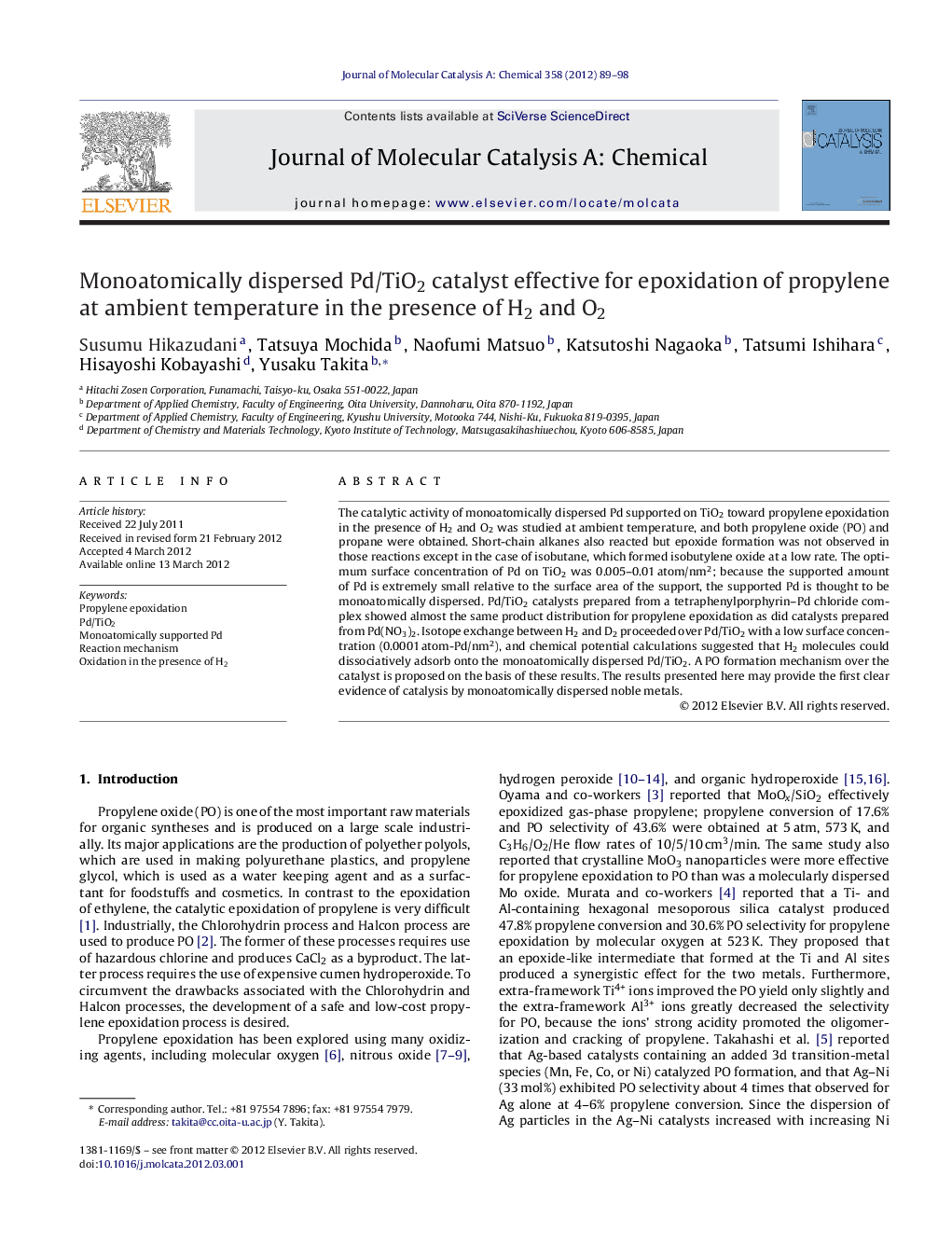| کد مقاله | کد نشریه | سال انتشار | مقاله انگلیسی | نسخه تمام متن |
|---|---|---|---|---|
| 66253 | 48421 | 2012 | 10 صفحه PDF | دانلود رایگان |

The catalytic activity of monoatomically dispersed Pd supported on TiO2 toward propylene epoxidation in the presence of H2 and O2 was studied at ambient temperature, and both propylene oxide (PO) and propane were obtained. Short-chain alkanes also reacted but epoxide formation was not observed in those reactions except in the case of isobutane, which formed isobutylene oxide at a low rate. The optimum surface concentration of Pd on TiO2 was 0.005–0.01 atom/nm2; because the supported amount of Pd is extremely small relative to the surface area of the support, the supported Pd is thought to be monoatomically dispersed. Pd/TiO2 catalysts prepared from a tetraphenylporphyrin–Pd chloride complex showed almost the same product distribution for propylene epoxidation as did catalysts prepared from Pd(NO3)2. Isotope exchange between H2 and D2 proceeded over Pd/TiO2 with a low surface concentration (0.0001 atom-Pd/nm2), and chemical potential calculations suggested that H2 molecules could dissociatively adsorb onto the monoatomically dispersed Pd/TiO2. A PO formation mechanism over the catalyst is proposed on the basis of these results. The results presented here may provide the first clear evidence of catalysis by monoatomically dispersed noble metals.
Oxidizing activity of Pd is so strong as to completely oxidize air pollutants. However, the TiO2 catalyst on which Pd was monoatomically well dispersed and was reduced at 723 K, was effective for partial oxidation of propylene and butenes to the corresponding epoxides, in the presence of H2 and O2 at ambient temperature. The OOH radical derived from O2 and H2 may react with adsorbed propylene molecule to form propylene oxide.Figure optionsDownload high-quality image (94 K)Download as PowerPoint slideHighlights
► We prepared TiO2 catalyst on which Pd is monoatomically well dispersed.
► This catalyst is effective for epoxidation of lower olefins at ambient temperature.
► Pd is zero valent and epoxidation requires the presence of H2 and O2.
► H2 can adsorb dissociatively onto Pd metal and onto TiO2.
Journal: Journal of Molecular Catalysis A: Chemical - Volume 358, June 2012, Pages 89–98